In an audio recording provided to the Marquette Wire from 2018, university leaders express limited knowledge about university investments and refute negative accusations about its involvement with a hedge fund tied to Puerto Rican debt.
The recording, created Oct. 9, 2018, and obtained from an anonymous source, refers to the Boston hedge fund Baupost, which owns nearly $1 billion in sales tax bonds of Puerto Rico’s debts. The recorded meeting occurred between University President Michael Lovell, former provost Dan Myers, chief investment officer Sean Gissal and a group of students. It was provided to the Marquette Wire by an anonymous source, who requested anonymity for fear of retribution from the university.
The students formed a coalition to protest the university’s investments in Baupost. They then held a rally in October 2018 in Westowne Square, asking the university administration to reconsider its involvement with the hedge fund. The coalition claimed the hedge fund was profiting off hurtful measures toward an island recovering from Hurricane Maria, which killed thousands and left survivors without access to basic needs.
The recorded meeting came about after students requested to raise the issue with administrators.
Students voiced concern that Baupost, in hopes of buffering the $70 million debt in Puerto Rico, promoted cost-saving austerity measures on the island. These measures could include cuts to the pension system, prison closures, school closures, reductions in subsidies to the University of Puerto Rico, cuts to sick and vacation pay and consolidation of police stations and state agencies, among others.
During the meeting, Lovell and Myers claimed to have limited understandings of Marquette’s investments. Myers was hired as American University’s provost and chief academic officer after his departure from Marquette in October 2018.
Listen to the above clip to hear former provost Dan Myers and University President Michael Lovell discuss their knowledge of investments.
“I don’t know exactly what Baupost holds or what kind of bonds or how they work,” Myers said during the meeting.
Listen to the above clip to hear former provost Dan Myers discuss his limited understanding of Baupost.
Lovell said he did not know much about the investment situation prior to it being brought to his attention by the protesters.
Listen to the above clip to hear University President Michael Lovell discuss how he did not know much about Baupost prior to the students’ protest.
During the meeting, Gissal discussed the relationship between Marquette and Baupost, providing his assessment of the ethical nature.
“I would say (Baupost is) very thoughtful,” Gissal said during the meeting. “Over the years they have had opportunities to invest in life insurance, in other words profiting off of people dying, and they have chosen not to do that because of the ethical nature that they are profiting off from someone else’s negativity.”
It is unclear whether Gissal’s claim about Baupost’s behavior is true.
Listen to the above clip to hear Sean Gissal, chief investment officer, discuss his feelings on Baupost’s behavior.
During the meeting, Gissal acknowledged that Marquette has a social responsibility to be aware of its investments. He said he wanted to stay away from the politics that are related to the situation in Puerto Rico.
“We have to distinguish between government decisions and investment decisions,” Gissal said.
When asked by one of the students involved in the protest if it was fine for Marquette to profit from the hedge fund, Gissal said, “I am not saying anything is fine.”
Listen to the above clip to hear chief investment officer Sean Gissal and the protest group discuss government actions in Puerto Rico.
Protesters said they wanted the university to discuss the issues with Baupost and try to determine next steps from there.
Hannah Badeau, a Marquette College of Arts & Sciences alumna, attended the 2018 meeting with university officials.
“No one in the meeting seemed to want to hear what we were saying … They very consciously avoided having a conversation with us,” Badeau said.
Badeau said she believes Myers felt support for the protesters, though she did not provide specific examples. She said she believes this support was one of the reasons he parted ways with the university during the same month as the protest. It is unclear whether this is the case.
Badeau said the goal of the October 2018 protest was not to get Marquette to stop investing in Baupost, but rather to get the university to acknowledge that the investment in Baupost does not align with the school’s Jesuit values.
She added that Marquette’s investment in Baupost essentially means that the university is profiting “off the degradation of the social funds of Puerto Rico.”
The anonymous source who provided the recording to the Marquette Wire said one of the main goals of the student group was to convince Marquette to leverage its investment in an attempt to stop the Baupost hedge fund from affecting Puerto Ricans in an aggressive manner.
The source, who attended the meeting, said they felt that Marquette officials were not willing to listen and instead wanted to justify Puerto Rico’s debt and Baupost’s actions. They felt this was not conducive to having the actual conversation and instead was more an attempt to avoid answering for some of the university involvement.
“The university’s plan was to send this financial adviser to tell us that we don’t understand how the situation worked, and it was frustrating,” the source said, referring to Gissal.
The source suggested that Marquette knows the ramifications of its investments and chooses to ignore them.
“There is enough reason to believe that there is sketchy stuff going on, and they just don’t care,” the source said.
“Marquette University cares deeply about the people of Puerto Rico, especially our students whose families are directly affected by all the challenges that Puerto Rico currently faces,” university spokesperson Chris Stolarski said in an email.
Stolarski’s statement is the exact statement that former university spokesperson Chris Jenkins sent to the Marquette Wire in September 2018, after students first shed light on the Baupost investment.
In September 2019, an additional group of students delivered a letter to officials asking the university to halt its investments in Baupost.
“Your investments in fossil fuels and Baupost are in direct contradiction to the Jesuit Mission,” the letter reads.
The university declined to confirm or deny if it remains invested in Baupost. The Marquette Wire was unable to locate this information in the most recently available tax documents.
“The university is committed to ethical investing practices, while acknowledging that there is often a wide range of views when it comes to complex financial matters,” Stolarski said in an email, again repeating the exact words of former spokesperson Jenkins in 2018.
Stolarski added the university encourages government leaders to forge comprehensive policies to help Puerto Rico thrive — another point Jenkins made previously.
“It’s all we’re saying on the matter,” Stolarski wrote in an email.
A spokesperson for Baupost previously told the Marquette Wire that the hedge fund never advocated for austerity measures on the island.
Annie Mattea contributed to this report.
This story was written by Beck Andrew Salgado. He can be reached at beck.salgado@marquette.edu.

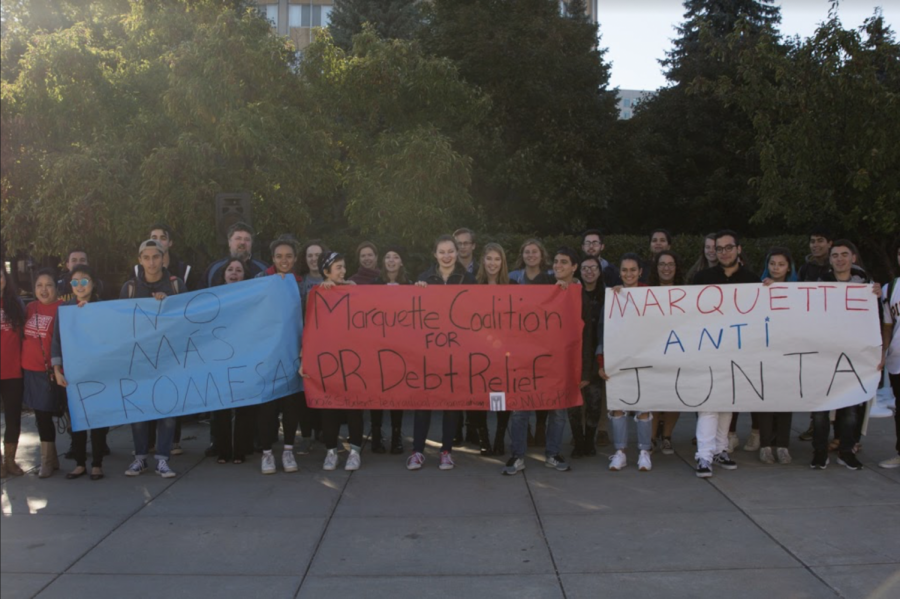
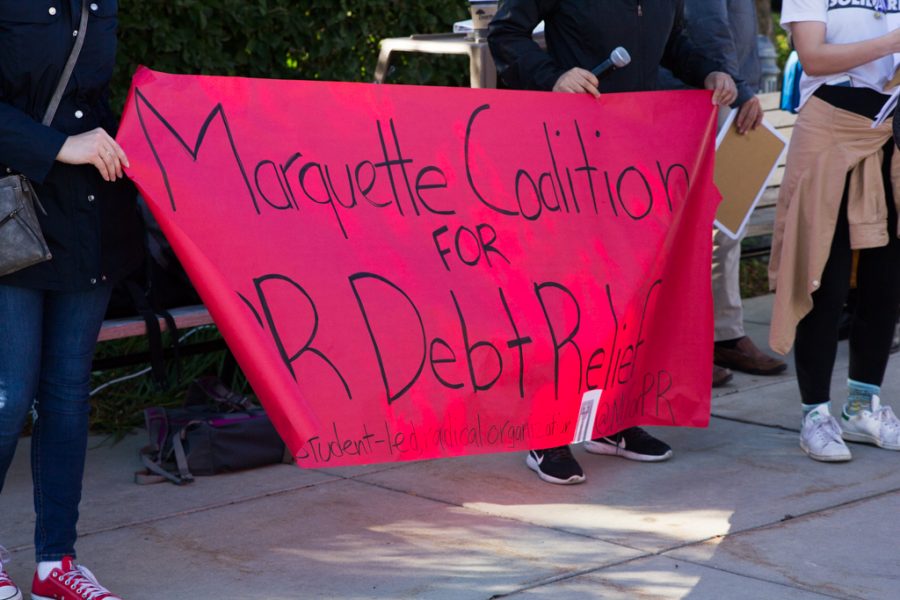
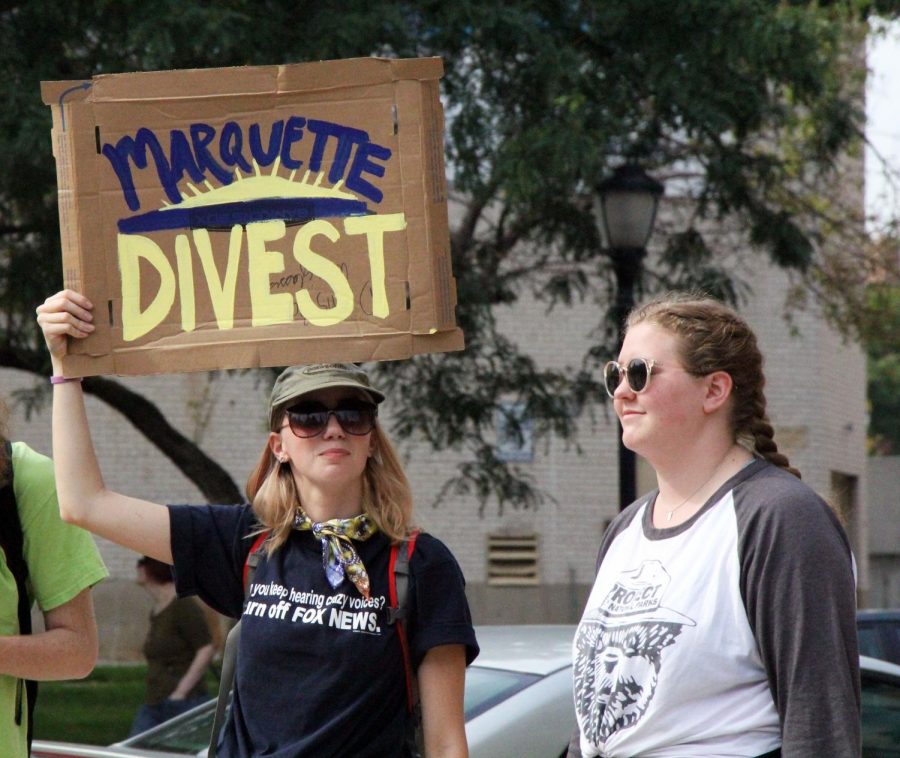
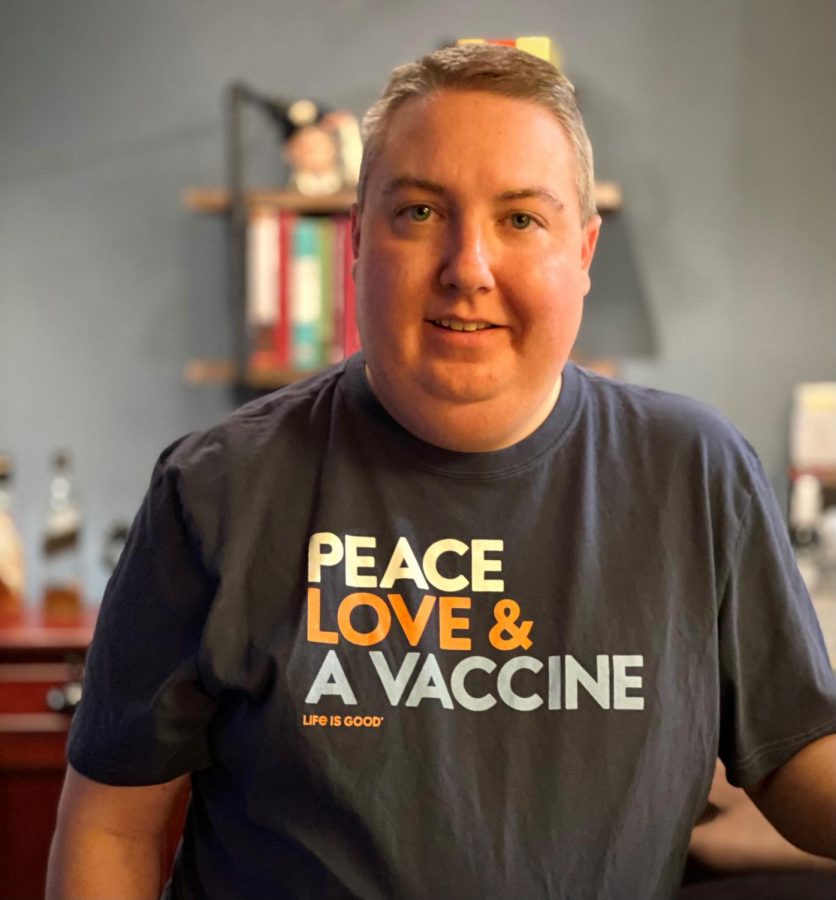

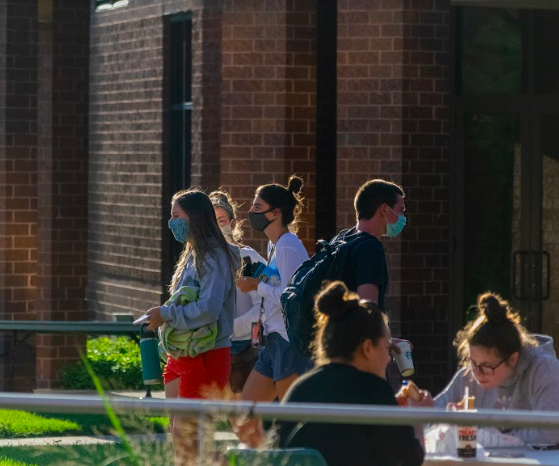
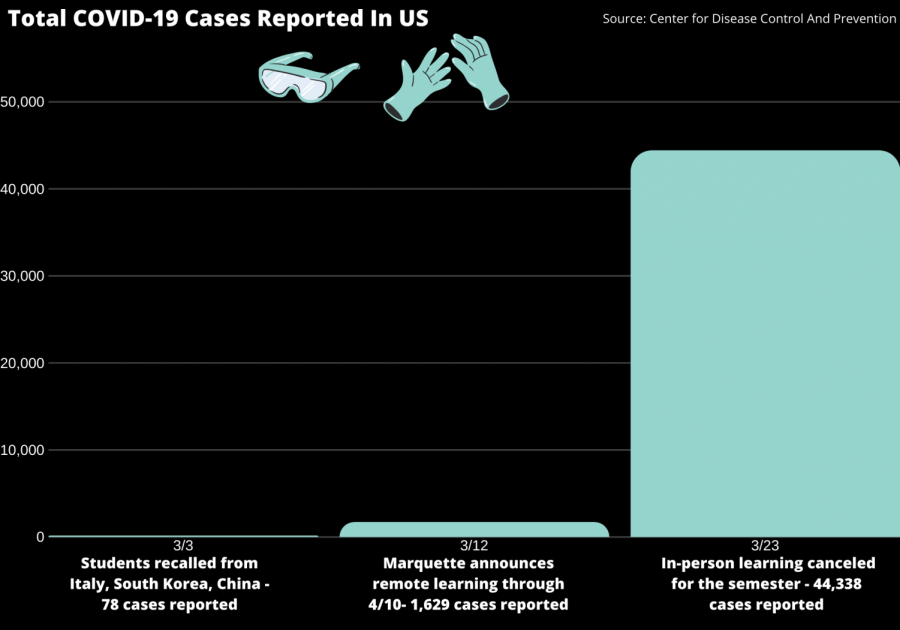
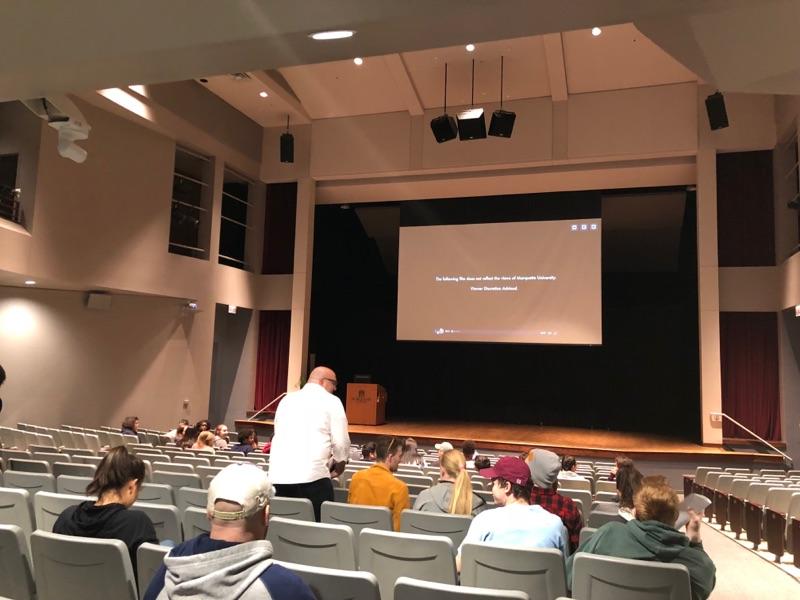
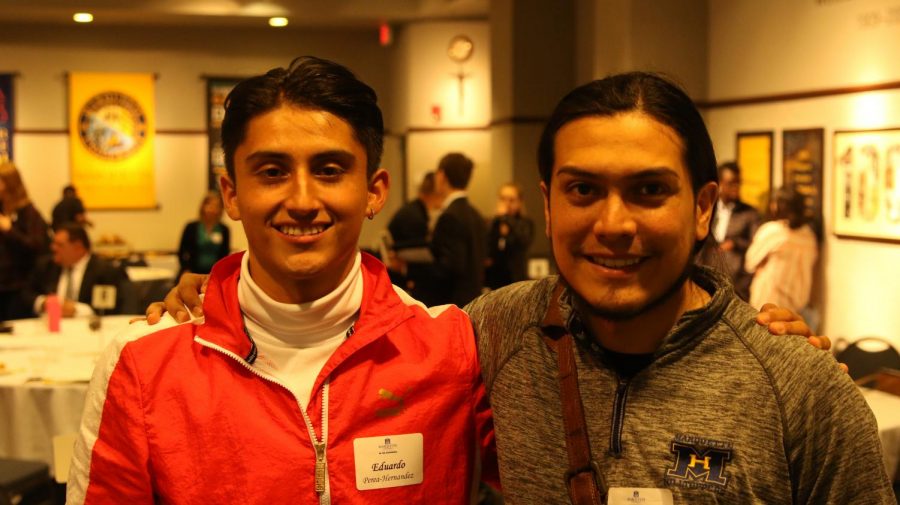
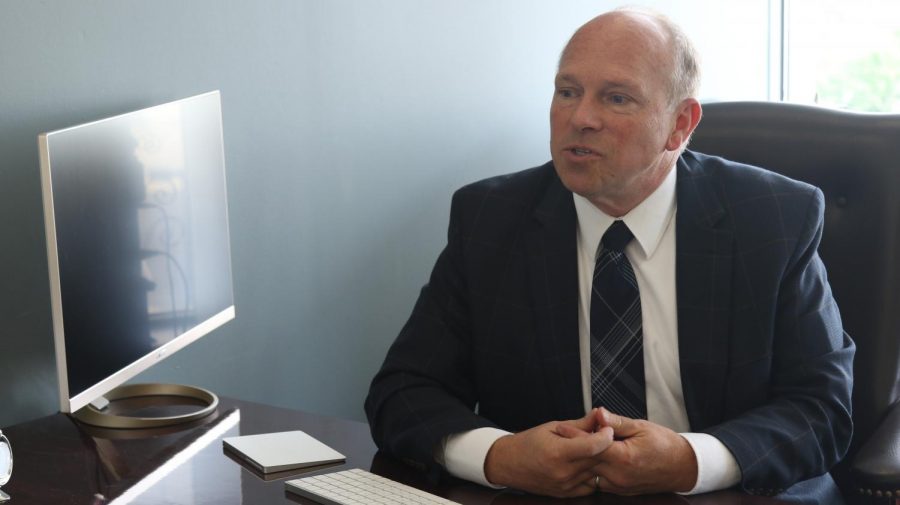
jds • Jan 21, 2020 at 1:17 pm
Good story. Where is the transparency on the part of Marquette?